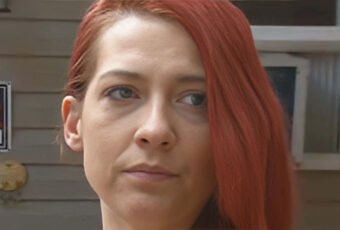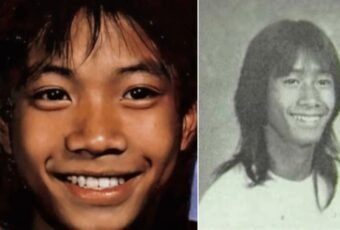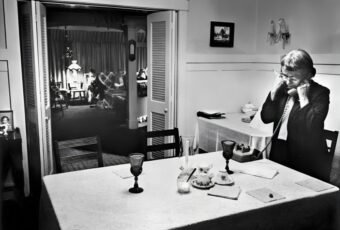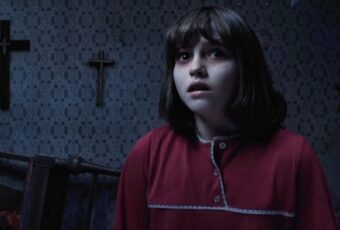Alexander Yuryevich Pichushkin, also known as The Chessboard Killer, is a Russian serial killer who is responsible for the deaths of 48 people. In order to eventually surpass his idol, Andrei Chikatilo, he set a goal of killing at least 64 people, which corresponded to the squares on a chessboard.
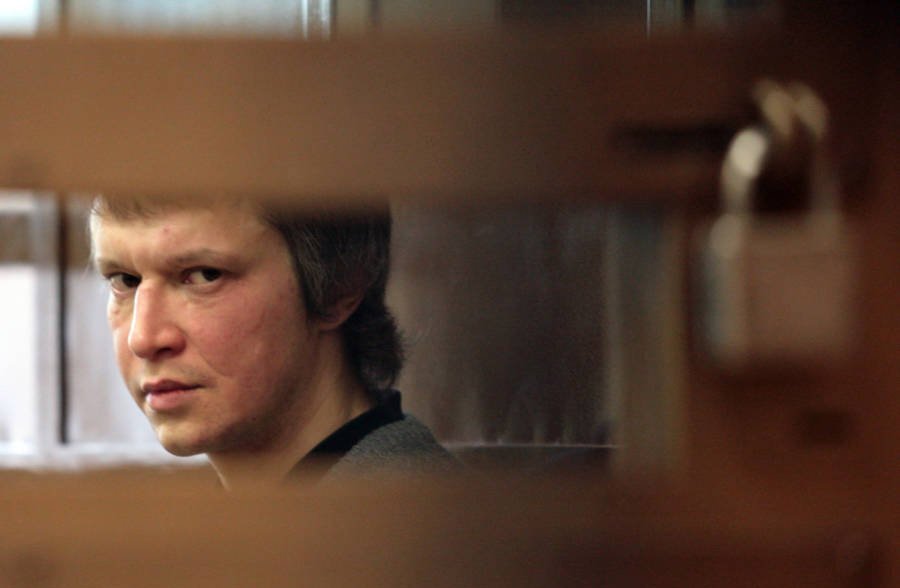
For me, life without murder is like a life without food. I was the father of these people, since it was I who opened the door for them to another world.
Early Life of Pichushkin, The Chessboard Killer
Pichushkin was born on April 9, 1974, in Mytishchi, Moscow. Pichushkin was initially remembered as a highly social child. This changed after Pichushkin fell backward off a swing, which then swung back and hit him in the forehead.
Pichushkin became incredibly aggressive and rash after the accident. His mother made the quick decision to transfer him from a regular school to one for children with learning disabilities.
Children from the mainstream school were known to have physically and verbally bullied Pichushkin prior to his transfer, referring to him as “that retard.” As a result of the abuse, Pichushkin’s rage and hostility grew.
Pichushkin’s maternal grandfather acknowledged that Pichushkin was highly intelligent when he reached early adolescence and felt that his innate talents were being wasted because he wasn’t involved in any activities at home, and the school he was enrolled in focused more on overcoming disability than on promoting achievement.
So his grandfather took him in and encouraged him to pursue intellectual interests outside of school. Chess was the most intense of these interests. Pichushkin was taught how to play, and after demonstrating his ability, he was introduced to exhibition games in Bitsa Park against elderly men.
Pichushkin turned out to be an excellent chess player, and for the first time in his life, he found a way to express his rage by dominating the chessboard in all of his games.
Pichushkin began to develop a more sinister hobby at this time, which was unknown to anyone at the time: whenever he knew he was going to come into contact with children, he would bring a video camera with him and threaten them.
He held a young child by one leg, upside down, and said to the camera on one occasion that has since been made public: “You are now under my command… I’m going to throw you out the window… and you’re going to die 15 meters down…” He then repeatedly watched these videos to reaffirm his dominance. However, by 1992, this practice was no longer enough to satisfy his desires.
Becoming a serial killer
Pichushkin, then 18 years old, committed his first murder on July 27, 1992. He planned to murder people with the help of a friend, Mikhail Odichuk, who thought he was joking. Odichuk attempted to back out of the situation when he realized his classmate was serious.
Pichushkin was enraged and struck his friend with a hammer before throwing him into a well. Pichushkin was questioned by police three days later about Odichuk’s death. Although there was some evidence pointing to his guilt, the investigation never yielded any results.
Later in 1992, Pichushkin claimed to have committed another murder. Olga, his girlfriend, had broken up with him and began dating Sergei, a mutual friend. Sergei’s death was ruled a suicide by Pichushkin, who disposed of his romantic rival by throwing him out a window.
As the killings progressed, his attacks grew more brutal
Pichushkin’s attacks became more ruthless as the killings progressed. He seemed unbothered about disposing of the bodies, leaving them out in the open to be discovered, with a broken vodka bottle protruding from some victims’ skulls.
By 2003, residents of Moscow, particularly those living near the park were concerned that a serial killer was on the loose. Pichushkin was dubbed the “Bittsevsky Maniac” and “The Bittsa Beast” by the press.
Konstantin Polikarpov, a neighbor, was invited to Bitsa Park for a drink on November 15, 2003. Pichushkin thrashed him three times with a hammer before tossing him into the well. He walked away once more, assuming his victim was dead. Polikarpov was able to climb out, but he suffered head trauma and has no recollection of the attack.
When a former cop named Nikolai Zakharchenko was found dead, the police began to take the murders more seriously. Murdered on November 16, 2005, his body was left out in the open rather than disposed of in the well, presumably as a challenge to the police. Pichushkin had grown cocky by leaving bodies in plain sight, but he was still cautious enough to avoid capture.
The arrest of Chessboard killer
Pichushkin was apprehended by authorities in June 2006 after he killed a woman he worked with at a supermarket. She had written her son a note informing him that she was going for a walk with Pichushkin. Despite knowing the dangers of murdering his coworker, he went ahead and did it anyway.
The police discovered a chessboard with dates on 61 or 62 of the 64 squares after his arrest. Pichushkin was a game fan who tried to kill as many people as there were squares on the board. Despite the dates, Pichushkin was only charged with 51 counts of murder and attempted murder by the police (three of his victims survived).
The confession of Pichushkin was broadcast on Russian television. He talked about his need to kill for a long time in it. “A life without a murder for me is like a life without food for you,” Pichushkin is said to have said. He later argued, without remorse, that he should be charged with more murders, based on his claim of killing 61 or 63 people (his story varied). During his 2007 trial, Pichushkin reportedly said, “I thought it would be unfair to forget about the other 11 people.”
In October 2007, Pichushkin was found guilty. After only three hours of deliberation, the jury found him guilty of 48 counts of murder and three counts of attempted murder. Pichushkin was sentenced to life in prison shortly after the trial. The heinous nature of his crimes has reignited calls for Russia’s death penalty to be reinstated.
Chessboard killer now
The serial killer claimed that his killings were “not murder,” but rather “the hand of God,” and that he did not deserve the death penalty, which is no longer used in Russia.
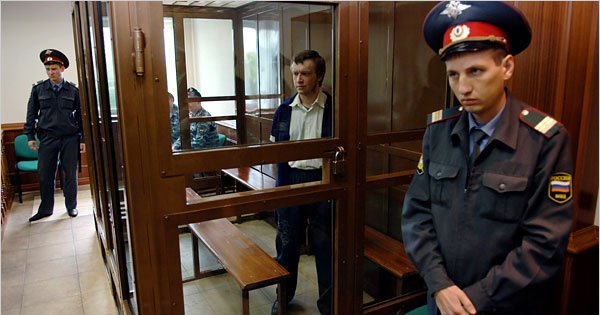
“Repentance is not only unnecessary in my case; it is wrongful,” he added, speaking from a cage in the prison psychologist’s office.
“I killed because I didn’t know what else to do.” There was no other option in such a situation.”
Pichushkin is incarcerated in the Arctic penal colony “Polar Owl” and spends his days in solitary confinement.
Now that you’ve read about chessboard killer, read about The Story of Grady Stiles Jr.; Freak Show Performer to Killer Lobster Boy.

